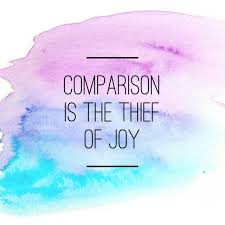 Have you ever tried to:
Have you ever tried to:
- Lose weight?
- Improve your relationship?
- Not get upset with someone?
- Not worry?
- Complete a challenging project?
And felt COMPLETELY STUCK…..as if you just can’t do it!
We’ve all felt like we’re drowning in mud.
times you feel stuck and confused.
You want to move. You should move. You have to move. But you can’t.
Right now, think of a goal or something you’ve really been wanting to change.
Now, see if you’ve ever used any of the four NEGATIVE things we say that keep us stuck and how you can reframe them into something positive.
NEGATIVE Statement #1
I’ve tried everything!
Have you really tried everything? Usually we’ve tried 4-5 things.
Then we start to tell ourselves,
- “It didn’t work for me.”
- “It’s not possible for me.”
- “I just can’t do it.”
- “I might as well give up.”
This statement halts us from continuing to put forth effort.
What this statement really does is give us an excuse to ‘quit trying’.
We back off and give up too soon.
It’s just a story that we tell ourselves—but, it’s not a true story.
There are lots of new ways to keep trying.
Ask yourself:
- “Who can I ask to help me?”
- “Who can I ask for ideas?”
What’s really sad is that success could be right around the corner.
We may have failed a lot but the truth is that failure brings us closer and closer to achieving that which we desire.
With each failure, we learn and each time we learn we continue to do it a little better.
Each time you try something and fail, you are getting closer!
Keep asking yourself:
- What else can I try?
- What can I do different?
“Don’t carry your mistakes around with you.
Instead, place them under your feet and use them as stepping stones.”
NEGATIVE Statement #2
That works for them but it doesn’t work for me.
Ever catch yourself thinking,
- “I’m not like them.”
- “They have what it takes. I don’t.”
- “They were just born that way, I wasn’t.”
- “They’re just different than me.”
We continually compare ourselves to others and we often come up short.
- “They’re more outgoing.”
- “They’re smarter.”
- “They’re more talented.”
- “They’re more skilled.”
The truth often is that they’ve worked hours on developing their skills and talents. It didn’t always come natural for them either. They’ve just invested the time and energy on polishing the skills needed.
They trained, conditioned, practiced and kept getting better and better and better.
You just have to put in the miles.
Truthfully — sometimes it’s not easy for anyone, but if they can do it, why can’t you?
You can think of a million excuses and explanations but the truth is—quite often– There really isn’t any reason you can’t do it; it’s just your thoughts lying to you.
Replace it with a new mantra—Chant the new mantra over and over.
- “I can do it.”
- “It’s possible.”
- “If they can do it, then why can’t I”
How can I start working and training so I can have that too—so I can be that way too??
Whether you believe you can do a thing or not, you are right.
— Henry Ford
NEGATIVE Statement #3
You don’t understand.
You don’t understand- you don’t get it-you don’t know what it’s like for me. It’s different for me, it’s harder for me, you don’t know what my life has been like.
Again, it’s a negative statement that holds us back. Then you quit. You think people can’t understand your journey—what’s happened to you—what you’re going through.
They’ve never gone through what I have…there life is easier.
It’s a statement that gives you permission to only give it a half-hearted attempt.
We’ve all had some special situation in our life-one that we can use as an excuse to say that it’s not possible for us.
Reframe-
There have been many people who have faced difficult challenges in their life—but didn’t use them as an excuse to hold them back—but rather as fuel to move them forward.
- Albert Einstein didn’t speak until he was four years old.
- Jim Carrey used to be homeless.
- Richard Branson has dyslexia.
- Stephen King’s first novel was rejected 30 times.
- Thomas Edison failed 1,000 times before creating the lightbulb.
There are people who have had obstacle after obstacle and still reached their goals—people who have had a way harder journey than us yet they still made it –they still accomplished what they were out to do.
So, when you want to say you don’t understand—think of some of those people and again say,
“If they can do it, then I can do it.”
NEGATIVE STATEMENT #4
It’s easier said than done. It’s too hard.
That’s true with everything!
Everything is easier to say than it is to do it.
I’m going to go get ice cream from fridge—is easier said than done.
That saying is true about everything.
Everything is easier said than done–But we often let it stop us from doing it.
Our bodies try to keep us in our comfort zone. So when we try to change something—a bad habit—a way our relationship has been–we convince ourselves it’s too hard—and then we don’t try very hard.
It’s a negative statement that holds us back.
If you’re struggling trying to get ahead and make changes-try changing what you’re saying to yourself.
Watch your internal talk because when we say pessimistic statements, they have a lot of power over our life.
Most of us are in constant mental chatter. We talk to ourselves all day long 24/7… and, unfortunately, this self talk is frequently negative. This negativity can destroy any seed of hope that we may otherwise have in reaching our goals.
Instead of saying-I’ve tried everything, Say: “What else can I try?”
Instead of saying “That works for them but it doesn’t work for me.” Say—“If they can do it, then I can do it!”
Instead of saying “You don’t understand,” Say—“How can I become the person that can accomplish that?”
Instead of saying “It’s easier said than done—It’s too hard” –Say– “Everything is easier said than done but where there’s a will, there’s a way. I’ll figure it out.”
Our actions are inspired by our thoughts. If we can change the way we think, we can begin to change the actions we take. Practicing positive self talk can help us set in motion actions that will bring us great rewards!!!.
It’s easy to be a pessimist. It takes a conscientious effort to be an optimist.
Your thoughts and words are determining your life.





